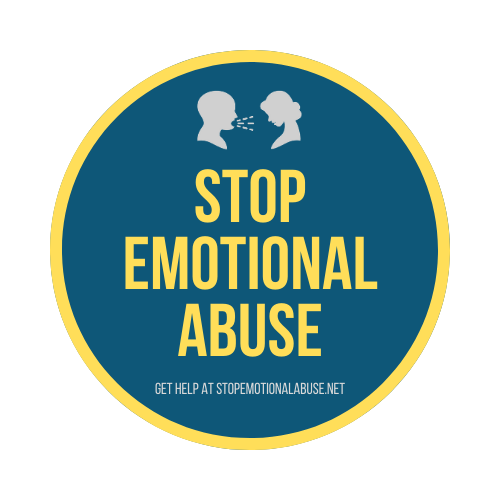As I work with people in toxic relationships, it’s clear that most traditional relationship advice and counseling doesn’t work in those situations.
It’s actually counterproductive, doing more harm than good.
This is not a dig at my very skilled and caring counselor friends doing their best.
Rather, it’s a reflection of the hidden, ugly dynamics at play in a toxic situation when you’re dealing with a relationship bully.
Let me explain.
Toxic people, relationship bullies, get their kicks from being in control. Controlling the narrative, the situation, the people around them, other’s perceptions of them (including counselors) etc. They crave, require, and demand control. I go into the reasons for this and the behavior it drives more in depth in the online course Stop Emotional Abuse if you’re interested to learn more.
Traditional counseling and advice unknowingly feeds into the bully’s unhealthy need for control in the following five ways.
1. Traditional Counseling: You both have things to work on. Each of you should work on your own issues and try harder.
It’s true in any relationship, we all have issues on which to work, but here’s why it’s damning in a toxic relationship. For years, the abused person has heard from their partner that they are the cause for the problems in the relationship and if they would just “shape up” and do exactly what the bully is telling them, everything would be better.
Toxic people play by their own rules
Believing that to be true because the bully is so convincing, and genuinely wanting a better relationship, the abused person goes about “setting things right,” doing their best to meet what are usually unreasonable demands from the abuser. Because the abused person is often codependent, they will do whatever it takes to make the relationship better.
No matter what the abused person does, however, it’s never enough because that insatiable need for control by the bully will cause them to move the goalpost every time the abused gets close. By changing the rules of the game and creating chaos, the bully can again have control of the situation. I mean, what better way to control a situation than to create it?
But wanting to do what the counselor, the professional, has suggested and willing to do WHATEVER it takes to improve the relationship, what will the abused person do? Try harder, which will only perpetuate this unhealthy cycle, especially because the abuser never does much to improve the relationship and only takes away from it.
2. Traditional Counseling: Go back to what drew you to each other in the first place and rekindle that.
This one is particularly frustrating for the abused person because they would LOVE for the person the bully initially was to come back. They’ve been waiting for months, possibility years, for that version to reappear, that’s what keeps them holding on, hoping beyond hope, clinging to a toxic relationship.
Here’s the reality: that person is NEVER coming back. That charming, wonderful, caring, perfect person the abuser once was and the abused partner hopes comes back, only existed as a façade, a fake persona used long enough to draw the abused person in. Bullies’ prime need and concern is for control.
The abuser carefully conduct this ruse of being the perfect match for their partner to lure the unsuspecting person into their clutches so they can control them once they’re intoxicated with their love bombing and they will do whatever it takes to hopefully get some of that euphoric high back. If that sounds dire, please understand I’ve understated it. Check out the online course Stop Emotional Abuse for a very clear explanation of all of this.
This traditional advice to go back to the origins of the relationship perpetuates the toxic cycle because the abused person believes that if the counselor thinks it’s possible to recreate that dynamic, which would be heaven for them, they’ll continue to hold on to false hope.
3. Traditional Counseling: Be more open and vulnerable with each other, share what’s on your heart and mind to increase the emotional intimacy.
The toxic person will use what’s important to you as currency to get what they want. It’s emotional blackmail.
Oh boy. This one is a gold mine for the bully. The abuser loves when the abused is vulnerable as it gives the abuser ammunition to use against them later. The bully loves to use what’s important to the abused as currency to get what they want later. And what does the bully want? Control. So they’ll use the most meaningful things, the things most important to their partner, as leverage against them. The more the abused person shares, the more the bully can use against them later.
Does that sound sick and unbelievable and unlikely? It’s not in the least. I coach dozens and communicate with thousands of people in these situations and the pattern is always the same.
My friend Mary lost her dad several years ago when he committed suicide. Her mentally abusive partner mocked her for how she grieved that loss.
After 13 years of marriage and wanting to create more closeness through vulnerability, my friend Matt told his emotionally abusive wife about the most poignant emotional trauma he had in childhood, related to his father. Her response was cold, uncaring, and totally void of connection. She didn’t see anything wrong with her lack of empathy and justified her response even further when he mentioned how it hurt him.
Anything you say can and WILL be used against you by the bully to hurt you and keep them in control.
4. Traditional Counseling: Tell me what’s bothering you about the other person.
Remember what the bully wants? Control. Power. To not look weak or inadequate. So guess what happens when the abused person shares anything with the counselor about what’s bothering them about the abuser?
The bully tears the abused person apart as soon as they get in the car for “making them look bad.”
The more the abused partner shares with the counselor, the worse it will be for them later. So they learn to stop sharing, which plays right into the bully’s desires to look powerful and innocent of wrong doing and be in control of the situation.
The toxic person gets a huge kick out of appearing perfect to the counselor and others
The bully will then say, “Look, it’s my partner who is the problem. They can’t think of one thing they want me to change. Obviously, they need the work, not me. If I don’t have anything to work on, I guess the only thing wrong in our relationship is my partner doesn’t see how much I do for them, how good I am to them.”
It’s sick and it’s twisted and it’s real and it plays together with the previous point about vulnerability.
The bully gets a huge kick out of looking like the saint.
But don’t counselors see through this, you ask. Nope. Which brings us to the next reason why traditional counseling doesn’t work.
5. Traditional Counselors aren’t trained to see it.
The abuser is charming and will often convince the therapist just like they do others that there is no issue, at least not on their side. The bully is skilled at painting the exact picture they want others to see. Counselors who aren’t skilled in this area are unfortunately no less vulnerable to the abuser’s manipulation than others.
The reason is that they, like all others who haven’t experienced this type of abuse up close and personal, don’t know the signs, which can be so hard to spot, especially in a clinical setting where the abuser is putting on a good show. Another reason for it is that the traditional counselor, just like anyone else who hasn’t lived with an abuser, can’t comprehend someone would actually behave the way the abused partner is trying to describe. They try to apply normal human logic to the situation and attempt to understand it from that perspective. The problem is, if you’re trying to understand psychosis through the lens of sanity you will find it’s a losing battle.
Most traditional counselors can’t see through the show the toxic person puts on because they’re looking through the wrong lens
Abusive behaviors can only be understood through the proper lens and since most people who haven’t lived this situation don’t know what to look for, they perpetuate the bully’s desires. I’ve experienced it and I’ve seen it play out time and again with others.
An additional point here is that the abused person has difficulty putting the abuse into words, since it’s so insidious and because of something real called Complex Post Traumatic Stress Disorder, C-PTSD. It’s hard to verbalize the treatment you’ve received. This adds to the difficulty for a traditional counselor to sort through what’s really happening.
Recap
Traditional advice and counseling doesn’t work in toxic relationships.
The advice of:
You both have things to work on perpetuates the unhealthy cycle of co-dependence. Go back to what drew you to each other in the first place promotes false hope. Being more vulnerable to each other exposes the abused partner to more abuse. Telling the counselor what’s bothering the abused partner will lead to more abuse.
And traditional counselors, as wonderful as they are, aren’t trained to spot abuse. Heck, it’s hard for the one living in it to know what’s happening!






